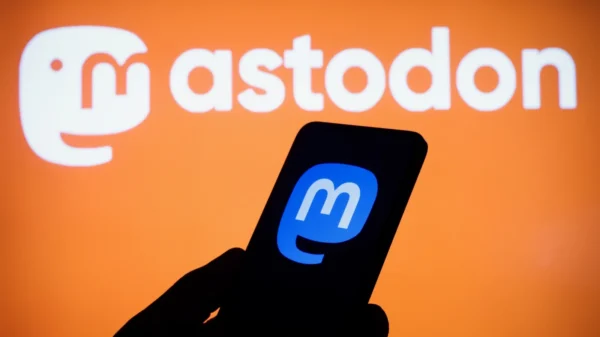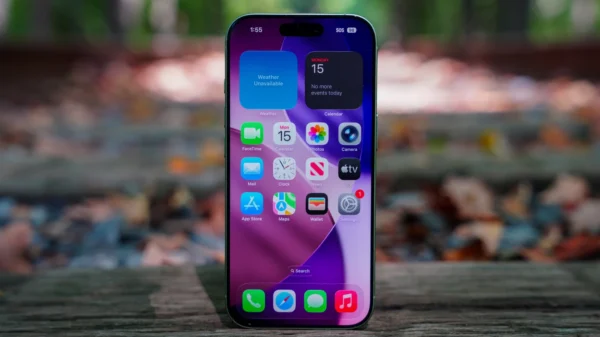The way we shop online is about to change, and artificial intelligence is at the center of that transformation. What used to be as simple as clicking through product listings is evolving into a future where AI could not just help you search for what you want, but actually handle the entire shopping experience for you. Leading technology companies like Google, Amazon, and OpenAI are racing to ensure they play a critical role in this new era of online commerce.
Shopping has long been one of the primary activities people engage in on the internet. Jeremy Goldman, senior director of marketing, retail, and tech briefings at eMarketer, explained that companies that become integral to online shopping can monetize consumer attention in multiple ways. “If you can become really core to that, then you’re able to monetize that attention in a lot of different ways,” he said. In this sense, the AI-driven shopping battle isn’t just about convenience—it could determine which companies dominate the next era of the web.
The integration of AI into e-commerce is already underway. Consumers are increasingly relying on AI tools to help them make purchasing decisions. OpenAI and Walmart recently announced a partnership that allows users to shop for Walmart products directly through ChatGPT. Similarly, US users can now buy Etsy items without leaving the chatbot environment. Meanwhile, the AI-powered Comet browser from Perplexity lets users set up agents to handle tasks like shopping on Amazon, though Amazon has already challenged the company with a cease-and-desist notice.
The scale of AI’s influence on online shopping is significant. According to Salesforce data, AI and virtual shopping assistants are expected to drive $73 billion in global online sales—roughly 22 percent of all orders placed—from the Tuesday before Thanksgiving through Cyber Monday. The data highlights just how deeply AI is starting to penetrate retail, from simple product suggestions to AI agents that proactively help users make purchases. Traffic from AI-driven assistants has grown 119 percent year-over-year in the first half of 2025 alone, signaling a rapid shift in consumer behavior.
Google is among the companies accelerating this trend. The tech giant recently announced several new AI-powered shopping features. One notable example allows users to ask Google’s AI agent questions about products they are looking for, prompting the AI to call local stores to check stock availability, pricing, and promotions. A new “Let Google Call” feature will make this process seamless for shoppers. Google is also expanding shopping capabilities in its Gemini chatbot app, including a tool that can automatically purchase items when they fall below a user-specified price. These innovations are aimed at keeping users engaged within Google’s ecosystem, where over a billion shopping-related queries already occur every day.
Amazon is also doubling down on AI integration in its retail platform. The company has introduced features like its Rufus AI assistant, which answers product questions and provides personalized recommendations. According to Amazon CEO Andy Jassy, interactions with Rufus have increased by 210 percent year-over-year, and users who engage with the assistant are 60 percent more likely to complete a purchase. These statistics underscore the direct connection between AI assistance and consumer spending.
The implications of AI-driven shopping extend far beyond convenience. Vidhya Srinivasan, Google’s vice president and general manager of ads and commerce, emphasized that AI experiences layer seamlessly onto everyday online activities. For example, when planning a party, an AI could not only help with research and ideas but also assemble a shopping cart with decorations, snacks, and other essentials, all with minimal effort from the user. Analysts like Brad Jashinsky of Gartner see AI in retail as a transformative technology on the scale of the smartphone, the internet, or the personal computer. Breakthroughs of this magnitude have historically disrupted established leaders, creating opportunities for both startups and companies seeking to challenge incumbents.
That said, the path forward is not without hurdles. ChatGPT and other AI platforms face challenges in competing with established ecosystems like Amazon’s Prime service. Widespread adoption is still limited, with only 34 percent of Americans having used ChatGPT and 20 percent remaining unaware of the platform, according to Pew Research data from June 2025. Despite these challenges, the race for AI dominance in online shopping is more than just a question of sales—it is about shaping the future of the internet itself. Companies are asking whether they want to be a hub that drives the web or merely a spoke in someone else’s network.
As AI continues to evolve, the companies that successfully integrate these technologies into daily online life may not only redefine e-commerce but also establish themselves as central players in the next generation of digital interaction. For consumers, it could mean a world where AI assistants handle everything from research to purchase, making shopping more seamless than ever before.














































